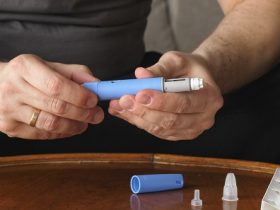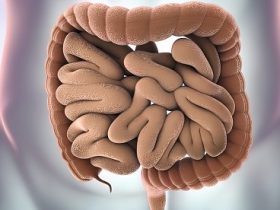The United States Preventive Services Task Force (USPSTF) is an independent and volunteer panel of national experts providing recommendations for disease prevention and evidence-based medicine.
During the 2022 Pri-Med East Conference held in Boston, Charles Vega, MD, FAAFP, Executive Director, UC Irvine Program in Medical Education for the Latino Community, UC Irvine School of Medicine, provided an update about USPSTF’s screening recommendations for Atrial Fibrillation, Chlamydia and Gonorrhea, use of aspirin for the prevention of cardiovascular disease, Type 2 Diabetes Mellitus, and use of dietary supplements.
Screening for Atrial Fibrillation
Atrial fibrillation is associated with an increased risk of cardiovascular diseases, including stroke. It is estimated that about 20% of patients with a stroke linked with AF are first diagnosed with AF at the time of the stroke or soon after. Screening detects more cases of Atrial Fibrillation. However, evidence of screening for improvement of health outcomes is limited. Anticoagulant agents such as warfarin were associated with a lower risk of first stroke and mortality but with an increased risk of major bleeding (estimates of bleeding were imprecise).
Screening for Chlamydia and Gonorrhea
Statistics have revealed chlamydia and gonorrhea to be among the most common sexually transmitted infections in the US. Nearly 1.8 million cases of chlamydia and more than 600,000 cases of gonorrhea were reported in 2019. Screening for chlamydia was linked with a lower risk of pelvic inflammatory disease in young women. Testing for asymptomatic chlamydia and gonorrhea was highly accurate at most anatomical sites. However, more study is required for screening in men and women during pregnancy, screening intervals, and adverse screening events.
Aspirin for the prevention of cardiovascular disease
Cardiovascular disease (CVD) is the leading cause of mortality in the US, accounting for more than 25% of deaths. Annually, more than 600,000 Americans experience a first myocardial infarction (MI), and the same number experience a first stroke. Low-dose aspirin showed small absolute risk reductions in major CVD events and small total increases in significant bleeding.
Screening for Prediabetes and Type 2 Diabetes Mellitus (T2DM)
Nearly 13% of all adults in the United States have diabetes, and 34.5% of the population is prediabetic. Of those with diabetes, 21.4% were unaware of their condition, whereas a clinician informed only 15.3% of those with prediabetes that they had this condition. Comparing screening to control showed no significant mortality benefit and insufficient data to assess other outcomes. Interventions improved outcomes for those with recently diagnosed diabetes. For those with prediabetes and obesity or overweight, interventions reduced the incidence of diabetes.
Dietary Supplementation Use
Almost 52% of US adults reported using one or more dietary supplements in the prior 30 days, and 31% reported using a multivitamin-mineral supplement. There is limited evidence to support using multivitamin supplements to prevent CVD or cancer. Moreover, given the potential harm, neither beta carotene nor vitamin E supplements should not be used for the prevention of CVD or cancer. Similarly, there is not enough evidence to assess using single or paired nutrient supplements to prevent CVD or cancer.
Key Takeaways
- Atrial fibrillation- Insufficient evidence for recommending a screening or not in asymptomatic adults ≥50 years.
- Chlamydia and gonorrhea- Sexually active women ≤24 years or those ≥25 years are at increased risk and are recommended to undergo screening. However, insufficient evidence to recommend screening in sexually active men.
- Aspirin for CVD prevention- Shared decision-making should be used when initiating aspirin for primary prevention in adults between 40-59 years with a ≥10% 10-year CVD risk. Should not be initiated in adults ≥60 years.
- Prediabetes and T2DM- Adults aged between 35-70 years with overweight or obesity should be screened, and patients with prediabetes should be offered or referred to effective preventive interventions.
- Dietary supplementation- Beta carotene or vitamin E supplements are not recommended to prevent CVD or cancer; the evidence is insufficient to assess the use of multivitamins.







